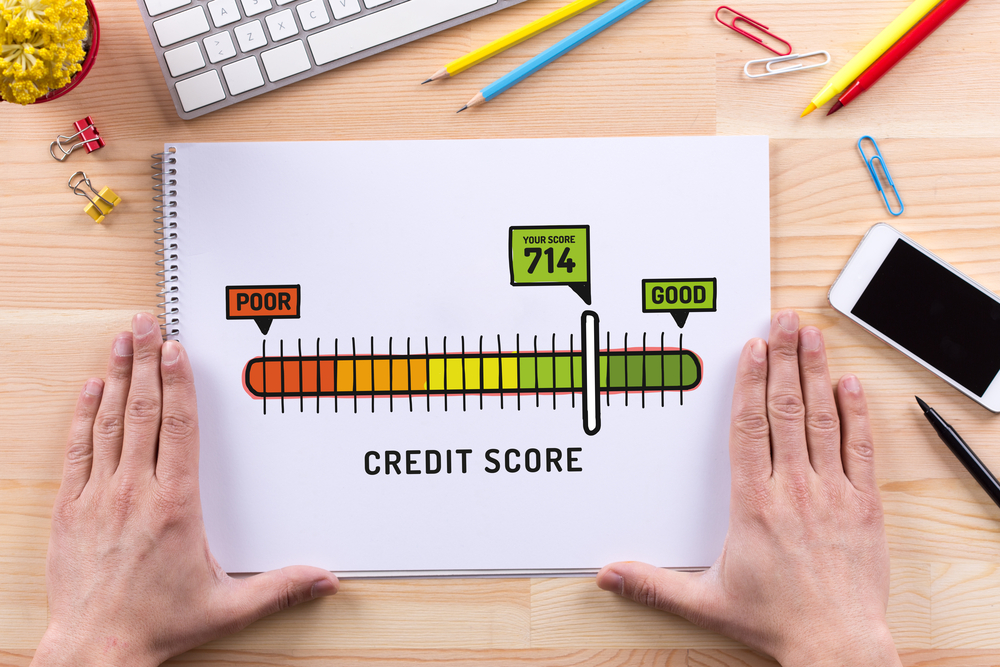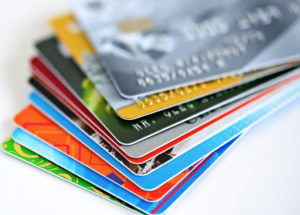
WAYHOME studio / Shutterstock.com
It’s very cliché to say so, but college is a time of great change. When I first prepared to go to college, my mom added me onto her credit card as an authorized user so that I would have money available in case of an emergency. We talked about how I was responsible for paying for my own transportation to and from campus, trips I wanted to take with friends, all of my textbooks, and any extras that I needed (snacks, clothes, movie tickets, you name it). This deal did me well for the duration of college. I put all of my earnings from my on-campus job into my checking account, so I just used my personal debit card when anything came up. I can’t remember ever having to use mom’s credit card.
My problem actually came after I had graduated from college and decided that it was probably a good idea to get off my mom’s card and get a credit card of my own. I didn’t want a Discover card (though they have some decent offers for college students) and instead chose to get a credit card through my bank, figuring it would be easier to have everything in one place. When it came time to apply, though, I wasn’t able to get my own card because I had no credit history. Being an authorized user doesn’t always build credit, and I was fortunate enough that there were no loans in my name.
I ended up opening a joint credit card with my dad. Having and regularly using a credit card in which I was an owner, not just a user, built my credit enough that now I get an obnoxious amount of mail offering Capital One, Southwest Airlines, and numerous other credit cards. It was a risky decision for my dad, though. Any payments that I didn’t make or purchases I made over my credit limit would negatively affect his credit too since he was a partial owner of the card. (Thanks for taking a chance on me, Dad!)
Credit cards are tricky business. If you use them well, and don’t have too many open at once, they can build your credit and make purchases safer and easier than if you were using a debit card. If you don’t pay your bills or continually carry a balance on your card, you may be liable for interest fees and your credit score could tank. As a college student, you may already be navigating the world of student loans. Realizing that eventually you will have to make monthly payments on those, you might decide that adding a credit card into the mix doesn’t seem like a wise idea. Who wants more bills? But, if you want to start building good credit, which is going to be necessary to have if you want to buy a car, rent an apartment, or be approved for a home mortgage, getting started early can impress banks and lenders in the future.
Why is having a good credit score important?
Your credit score tells lenders and banks how likely you are to repay your loans. If you have a low score, you are considered to be at risk of not paying. A high score shows that you have a history of repaying all of your debts. If you have a low credit score, you may find it difficult to rent or buy a home or apartment, sign up for utilities, qualify for credit cards, maintain low interest rates on your current loans, buy a car, or get offered low insurance rates. A low credit score will cost you in the long run. A high credit score, however, can save you money by qualifying you for low interest rates on loans, mortgages, and credit cards. You won’t have trouble buying a car, signing a lease for an apartment, or starting a new cell phone contract.

garagestock / Shutterstock.com
What is a good credit score?
Credit scores range from 300 to 850; the higher, the better. Typically, having a score close to 700 is good, while anything about 800 is excellent. Many credit card companies show you your credit score whenever you log on to your account. If your score is low, you can build your credit by paying off your full account balance each month, making payments on time, and using your card for less expensive payments (staying well within your credit limit).
How can I use my first credit card wisely?
- Become an authorized user on a parent’s credit card account. This is a great way to piggyback off of your parents’ good credit. Plus, your parents can monitor your spending and help you stick to your credit goals. Check with the issuer of the card to see if authorized users will be reported to credit bureaus; if not, your credit will not be affected.
- Open just one credit card during college. Be wary of flashy deals, especially store credit cards (Target, Gap, Macy’s, etc.) that offer on-the-spot discounts on your purchases. Unless you shop at a particular store very frequently and spend a lot of money each time, store cards generally aren’t going to be your best option. You’ll find lower interest rates on credit cards through a bank. It is most convenient to open your credit card with the same bank you use for your checking and savings. All of your accounts will be in one place and you can pay your balance with just one click.
- Don’t look for a sky-high credit limit. For your first credit card, a credit limit of $500 or $1,000 is all you need. Anything more could tempt you to run up a high debt and your expenses shouldn’t be so high during college that you would need a much higher limit.
- Stay within your credit limit, even if it is modest. Most credit card companies and bankers recommend that you utilize no more than 30% of your monthly credit limit. That means up to $300 a month on a $1,000 limit or $150 a month on a $500 limit. Charging any more can negatively affect your credit score.
- Charge only one monthly expense to your card. This is a starting place after all. Pick a manageable expense—gas or groceries, for example—and only charge that one expense to your account. You’ll be less likely to abuse your credit card if the expense you choose is already factored into your budget and you’ll stay well within your monthly credit limit.
- Pay your balance in full each month. This is age-old advice for a reason. If you let your balance sit, you’ll be throwing away money on high interest and negatively affecting your credit score at the same time. The easiest way to make sure your balance is always paid on time is to set up automatic bill pay online through your credit card company. That means that even if you forget to pay the balance on your credit card, it will be taken from your checking account each month.

Olleg / Shutterstock.com
- Apply for a credit card without an annual fee. There are some credit cards with excellent benefits that charge an annual fee, but as a starter card, you don’t want to be paying anywhere between $100 and $450 each year for the privilege of spending your own money. Look for a free card that rewards you with points or cash back.
When it comes down to it, there’s no need to stress about beginning to use a credit card. Make small purchases each month and pay off the balance in full. Soon, using your credit card wisely will be incorporated into your routine, and without much effort, you’ll be building a great credit score to serve you long after graduation.
-
Five Dos and Don’ts of Managing Student Loans as a New Doctor
-
No-Fee Student Checking Accounts
-
La importancia de estimar tus gastos y aprender a ahorrar
-
Seven Mistakes You Shouldn’t Make with Student Loans
-
Why You Should Start Building Credit in College
-
The Six Greatest Ways to Save Money on Textbooks
-
What It’s Going to Cost You to Move into Your First Apartment
-
How to Recognize and Avoid Student Loan Repayment Scams
-
What to Do If Your Debit or Credit Card Is Compromised
-
Why You Should Look at College as Your First Major Investment
-
15 Spring Activities for a Broke College Student Budget
-
Budgeting Tips for Recent Graduates


